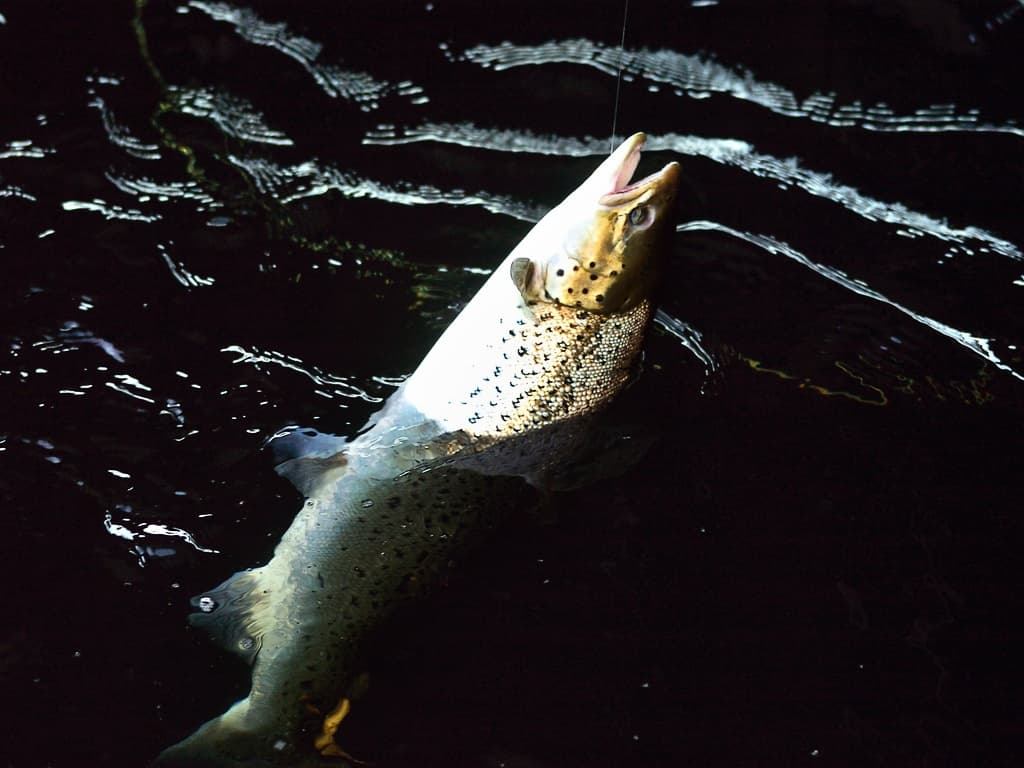Experts and fishermen are testifying to a continued difficult situation for wild salmon in Sweden. Now, fishing is being stopped in another river.
All signs unfortunately point to it being another catastrophic year in the rivers, says Thomas Johansson at Östersjölaxälvar in collaboration.
Last week, salmon fishing was stopped in the Råne River in Norrbotten. The responsible association refers to the fact that the ascending salmon are alarmingly few so far this year.
On Sunday, it was announced that recreational fishing for salmon would also be stopped in the Dalälven River.
In total, a ban on catching salmon now applies to six of Sweden's 16 Östersjölaxälvar rivers.
Last year, a significant decrease in the number of salmon migrating up the rivers from the Baltic Sea was noted.
It looks like there will be a weak migration in 2024 as well, notes Inger Dahlgren, head of fish regulation at the Swedish Agency for Marine and Water Management (Hav).
"Serious fault"
Testimonies from several watercourses point in that direction.
One example is the Byske River, known as one of the best rivers for salmon fishing, where around 1,000 ascending salmon have been noted until midsummer this year, according to Thomas Johansson, chairman of the Östersjölaxälvar organisation in collaboration.
That is about a third of the normal number.
It looks incredibly bleak. Something is seriously wrong with the Baltic Sea, says Thomas Johansson.
Ecosystem out of balance
Wild salmon venture out into the sea to feed for a few years before returning to their birth rivers for breeding. For a long time, the salmon populations in the rivers of northern Sweden improved, partly due to the reduced quotas for commercial fishing in the Baltic Sea.
It is difficult to find direct causal links to the recent deterioration, which may prove to be temporary. However, it is known that the environment in the Baltic Sea is heavily pressured by, among other things, eutrophication, fishing, and climate change.
We have an ecosystem that is not quite in balance, says Johan Höjesjö, professor of ecological zoology at the University of Gothenburg.
The trawl fishing of herring in the Baltic Sea, which is food for salmon, has been highlighted as a problem.
Unfortunately, it's the bycatch that's trawled up and ends up in pellet factories for farmed salmon, which isn't quite right, says Johan Höjesjö.
Comprehensive fishing ban in Norway
In Norway, the authorities decided last week to temporarily stop all salmon fishing in the southern parts of the country. A similar, centrally made decision is not currently being considered in Sweden.
We haven't deemed it necessary yet, says Håkan Carlstrand, investigator at the fish regulation unit at Hav.
However, we are reviewing the regulations for fishing successively, and it may definitely be included in the next review.
A total ban on catching salmon currently applies to six of Sweden's 16 Östersjölaxälvar rivers with wild populations:
Råne River
Kåge River
Sävarån River
Ljungan River
Testeboån River
Emån River
Source: Östersjölaxälvar in collaboration






